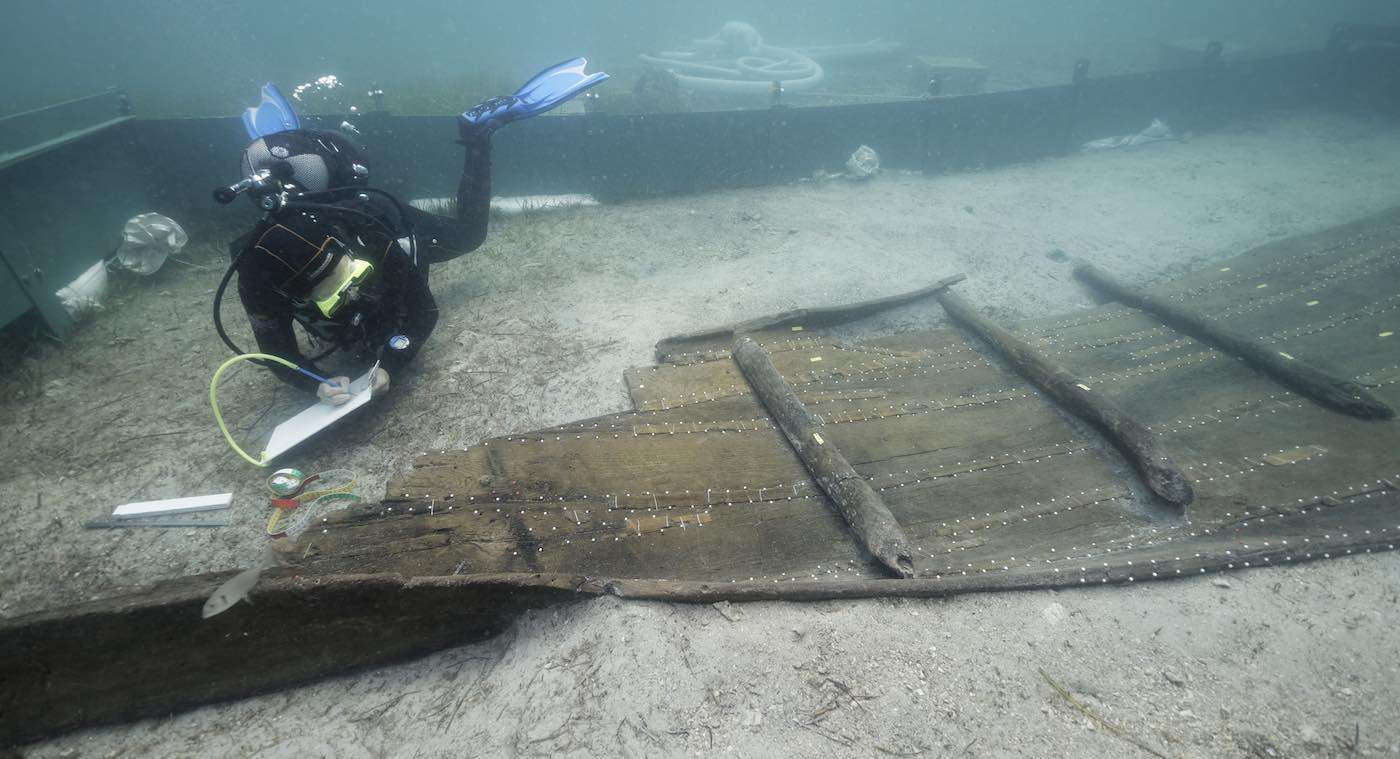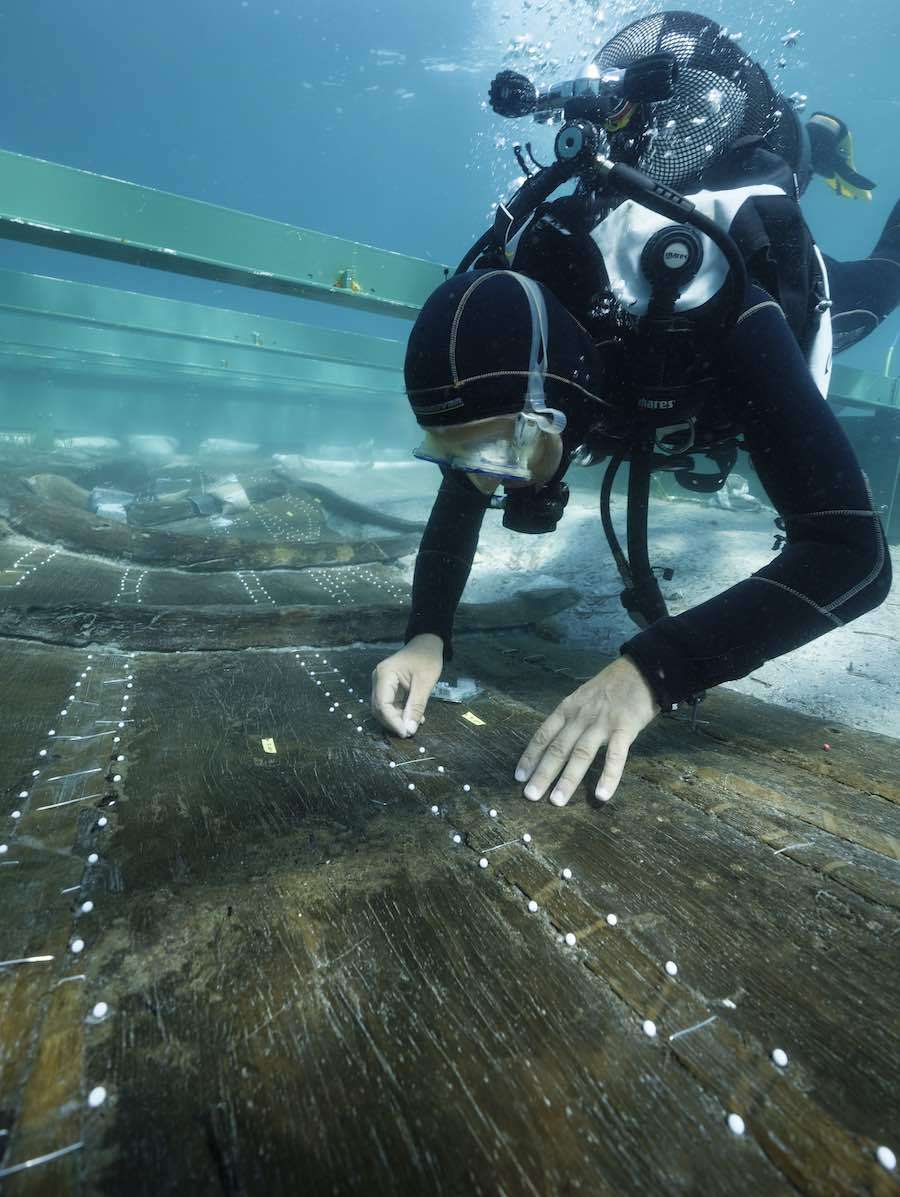Markings on French Cave Wall Identified as the Oldest Known Neanderthal Engravings
Based on the shape, spacing, and arrangement of the engravings, the team concluded that they are "deliberate, organized and intentional"

If you have ever taken an interest in underwater archaeology, you'll know that this is a truly astonishingly well-preserved shipwreck.
It must be 200 or 300 years old to look like that right? Try 3,000 years old—the oldest hand-sewn boat ever found in the Mediterranean.
Named the "Zambratija boat" because of its location in the Bay of Zambratija, the artifact was first investigated after reports from local fishermen. It's a lasting testament to an "ancient naval tradition" of the regions of Istria and Dalmatia.
"Its architecture and its construction, the assembly technique of the strakes, as well as the waterproofing system of the hull, have no equivalent in the Mediterranean area," per a statement from the Camille Jullian Center, a research organization connected to the CNRS.
Now, archaeologists with the French National Center for Scientific Research (CNRS), are getting ready to raise the boat from its watery tomb. A 23-foot section of the 39-foot-long boat is in pristine condition, and special care will ensure it survives the journey to the Archaeological Museum of Istria where it will be desalinated.
The scientists will notably reconstruct the boat in 3D, they will also try to date its construction more precisely, identify the fibers used for sewing, and study the techniques used for shaping the wood. Handling remains of this caliber is a delicate matter, each stage of the process requires the greatest precautions to preserve this exceptional vessel.

Dinosaur fossils aren't actually bones; they're mineralized imprints of bones. In much the same way, wood that remains in water this long becomes more water than wood. The water fills every molecular nook and cranny, and if it were to move the wooden remains would disintegrate.
A water-soluble wax called polyethylene glycol is sometimes used in ancient shipwrecks which impregnates the wood. Gradually the wax takes the place of the water molecules, and after the wood is dried out, the wax forms a reinforcing part of the structure.
SHARE This Unprecedented Find From Ancient Times With Your Friends…
Be the first to comment